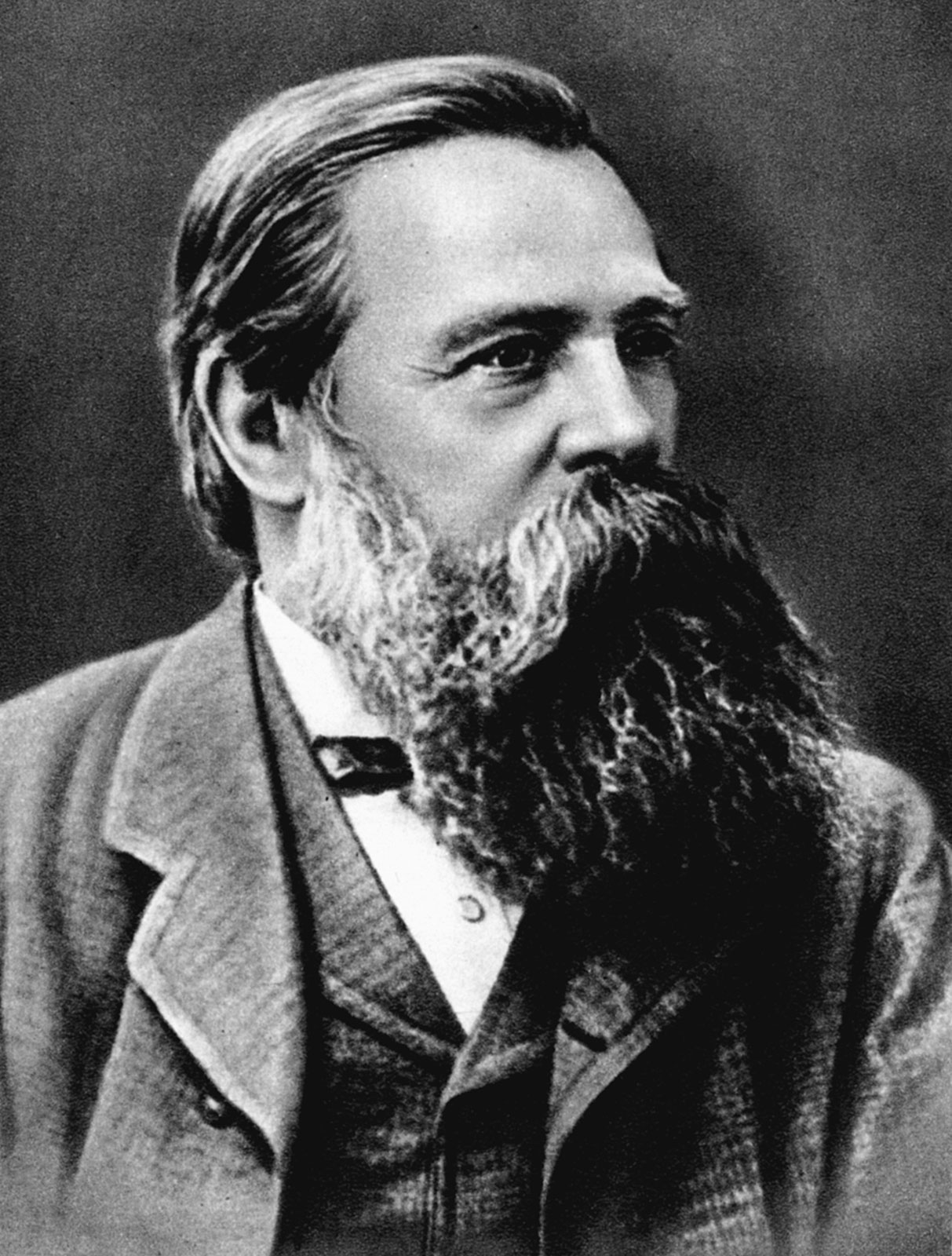More languages
More actions
Friedrich Engels | |
|---|---|
 Portrait of comrade Engels. | |
| Born | 28 November 1820 Barmen, Kingdom of Prussia, German Confederation |
| Died | 5 August 1895 (aged 74) London, England |
| Nationality | German |
Friedrich Engels (28 November 1820 – 5 August 1895), sometimes anglicized as Frederick Engels, was a German philosopher, historian, political scientist and revolutionary socialist. Together with his friend and long time collaborator Karl Marx, he developed the materialist scientific explanation of history and economics, which later became known as Marxism.
Engels was Marx’s dearest friend and inseparable comrade in arms, co-developer of dialectical materialism and scientific socialism and co-author with Marx of the Communist Manifesto; one of the founders of the Communist League and the International Association of Workingmen or First International.
Life and work
Engels was born in the city of Barmen in Rhenish Prussia, which at the time was a rapidly industrializing city. He was the son of a rich and very conservative industrial capitalist, Friedrich Engels Sr.
At the age of 20, Engels had many talents and developed many abilities. He practiced sports and studied music and foreign languages, including English, Italian, Russian, Spanish and Portuguese.
Engels moved to Manchester, England in 1842 and observed the conditions of the proletariat, leading him to write The Conditions of the Working Class in England. In 1844, on the way back to Germany, he wrote The Holy Family with Marx, which criticized Bauer and his rejection of political activity. Engels lived in Brussels and Paris between 1845 and 1847.
Marx and Engels returned to Germany to fight in the revolutions of 1848. He fled to London through Switzerland after the revolution was defeated. He moved to Manchester, where he lived until 1870. After Marx's death in 1883, he prepared and published the second and third volumes of Capital. He planned to release a fourth volume but died in 1895 before it was finished.[1]
Library works
References
- ↑ Vladimir Lenin (1895). Frederick Engels. [MIA]
